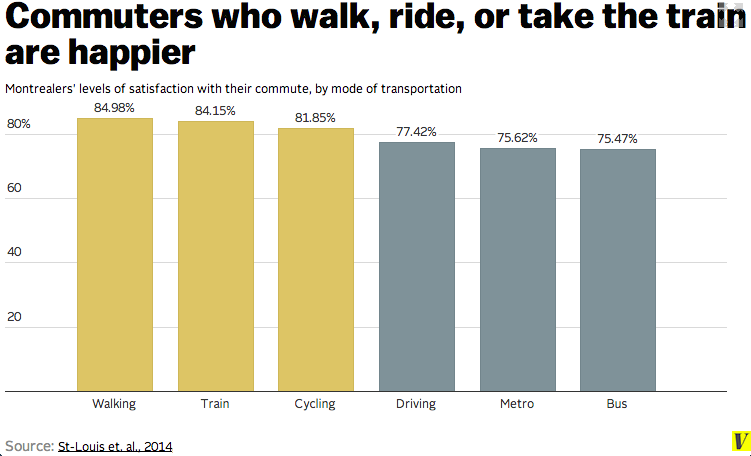Why Paris Is Going Car-Free For a Day

By:
Parisians will be forced to go “A Day Without a Car” (“Une Journée Sans Voiture") on September 27, as the city government will ban all cars from the roads for 24 hours to give everyone a break from vehicle pollution and noise.
For that day, cyclists and pedestrians will have the streets all to themselves. This day will coincide with European Mobility Week and the United Nations climate conference COP21.
Earlier this year, Paris Mayor Anne Hidalgo took to Twitter to announce the city's first "Day Without A Car" event:
Certain parts of the city will be blocked off solely for pedestrians. Government officials and folks who live in affected neighborhoods will be the only ones allowed to drive that day. Like the mayor, many took to Twitter to express excitement over the big day:
Other cities participating in car-free days
This will come a little more than a week after Stockholm's very own 24-hour car ban, which is also an initiative within European Mobility Week. Stockholm is one of 200 cities participating in European Mobility Week, with countries Budapest and Lisbon planning a car-free day as well.
Of course, going just one day without cars can't undo the long-term damage of worldwide pollution rates. As Good magazine points out, however, this likely makes it "a bit easier for city-dwellers—many of whom are likely inured to the frustrations of living in a traffic-heavy metropolis—to experience their everyday surroundings in a new, less hectic light."
What do roads look like without cars?
Earlier this summer, International Sustainable Solutions created a poster that shows what city life would look like without cars in a comparison image of downtown Seattle. The first poster image reveals 200 people in gridlock traffic, the second shows 200 people riding bikes down the same road, the third depicts what the people would look like in buses, and the fourth shows bicycles again. As we previously wrote, these snapshots are intended to highlight how much more space we could have if we ditched cars, which can be very environmentally unfriendly and expensive, among other things.
Last year, this photo blew up on imgur to highlight more efficient public transportation:
The societal cost of cars
Vehicles take up road space and add to world pollution, but they are also very pricey. A recent study from Sweden's Lund University found that cars cost six times more than bikes, and this costs society as well as the individual driver. Lund University's Stefan Gössling and University of Queensland's Andy S. Choi teamed up on this study to determine whether the Copenhagen Municipality needed a new cycling infrastructure system. They found that cars have a much higher economic impact than bicycles after studying the societal cost of congestion, health, road damage, noise, pollution, travel route, and climate change.
"The cost-benefit analysis in Copenhagen shows that investments in cycling infrastructure and bike-friendly policies are economically sustainable and give high returns," Gössling said in a release.
Why walking or cycling may be better for your mental and physical health
Last year, a Canadian study found that commuters who walk, use the train, or ride a bike to work are happier compared to people who drive. According to the findings, the journey of biking, walking, to taking the train to work enhances the commute experience versus merely driving in to work.
 Vox - vox.com
Vox - vox.com
"Perceptions that the commute has value other than arriving at a destination significantly increases satisfaction for all modes," the report reads.
